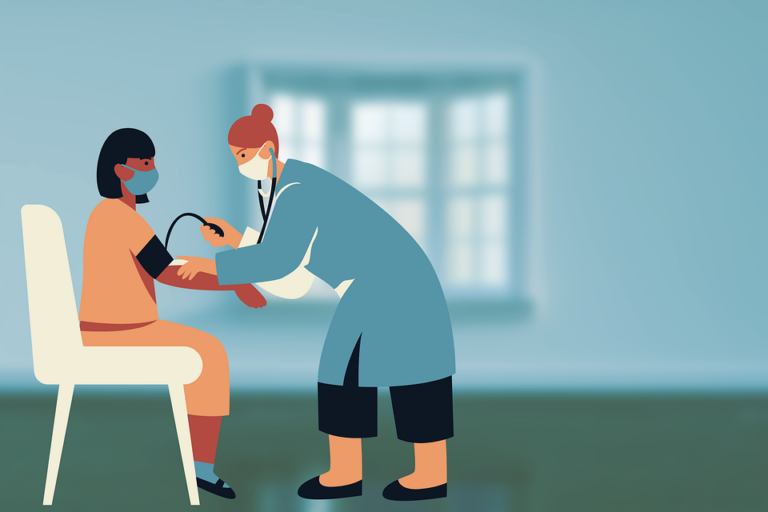Book Appointment Now

Integrating Mental Health Care into Primary Nursing Roles
Integrating mental health care into primary nursing roles is an essential step in addressing the global burden of mental health disorders. Nurses, as frontline caregivers, are uniquely positioned to detect early signs of mental illness, provide initial interventions, and advocate for holistic approaches to patient care. With their frequent and meaningful interactions with patients, nurses have the potential to bridge critical gaps in mental health services, particularly in underserved areas. However, this integration requires equipping nurses with the necessary skills, such as mental health screening, effective communication, and psychoeducation. By exploring strategies to enhance the role of nurses in mental health care, this discussion aims to highlight their pivotal contribution to improving patient outcomes and reducing stigma surrounding mental health issues.
Our nursing experts can deliver 100% custom paper about role of nurses in mental health care settings according to your order instructions.
Write my nursing essay
The Growing Need for Mental Health Integration
The Burden of Mental Illness
Mental health disorders are among the leading causes of disability worldwide. According to the World Health Organization (WHO), one in four people will experience a mental health issue at some point in their lives (WHO, 2021). Despite these alarming statistics, access to mental health care remains limited, particularly in underserved areas. Nurses, often the first point of contact for patients, have the potential to bridge this gap by identifying early signs of mental health disorders and providing initial interventions.
The Role of Nurses in Early Detection
Nurses are in a unique position to detect mental health issues during routine patient assessments. By observing changes in behavior, mood, and communication, nurses can identify early warning signs of conditions such as anxiety, depression, and substance abuse (Stuart, 2020). For instance, a patient presenting with unexplained fatigue, appetite changes, or difficulty concentrating might be experiencing depression. Early detection by nurses can lead to timely referrals and improved outcomes for patients.
Enhancing Nurses’ Skills for Mental Health Care
Training in Mental Health Screening
To effectively integrate mental health care into their roles, nurses require specialized training in mental health screening tools and techniques. Evidence-based tools such as the Patient Health Questionnaire-9 (PHQ-9) for depression and the Generalized Anxiety Disorder-7 (GAD-7) questionnaire enable nurses to assess patients systematically (Kroenke et al., 2019). Regular training and continuing education programs can equip nurses with the knowledge and confidence to use these tools effectively.
Building Communication Skills
Effective communication is essential for nurses to address mental health concerns. Active listening, empathy, and nonjudgmental attitudes create a safe space for patients to share their struggles. For example, motivational interviewing, a patient-centered communication technique, has been shown to improve engagement in mental health care (Miller & Rollnick, 2013). Providing nurses with these skills ensures they can initiate meaningful conversations about mental health.
Expanding Nurses’ Role in Mental Health Management
Providing Psychoeducation
Nurses can play a vital role in educating patients and families about mental health conditions, reducing stigma, and promoting understanding. Psychoeducation involves providing information about symptoms, treatment options, and self-care strategies. For example, a nurse might explain how cognitive-behavioral techniques can help a patient manage anxiety or stress. This approach empowers patients to take an active role in their mental health care.
Delivering Basic Interventions
While nurses are not licensed therapists, they can provide basic interventions such as stress management techniques, relaxation exercises, and coping strategies. For instance, teaching a patient deep-breathing exercises or mindfulness practices can help alleviate symptoms of anxiety. These interventions are particularly valuable in primary care settings, where access to mental health specialists may be limited.
Collaboration and Interdisciplinary Care
Working with Mental Health Specialists
Integration of mental health care into nursing roles requires strong collaboration with mental health specialists, such as psychologists, psychiatrists, and social workers. Nurses can serve as liaisons, coordinating care and ensuring seamless communication between patients and mental health providers. For example, a nurse who identifies symptoms of bipolar disorder in a patient can refer them to a psychiatrist while continuing to provide support and monitor their progress.
Advocating for Holistic Care
Nurses are well-suited to advocate for holistic approaches that address both physical and mental health. A patient with diabetes, for instance, may also struggle with depression, which can hinder their ability to manage their condition. By addressing both aspects of the patient’s health, nurses contribute to comprehensive and effective care (Gates et al., 2021).
Benefits of Mental Health Integration
Improved Patient Outcomes
Integrating mental health care into primary nursing roles leads to earlier detection and treatment of mental health issues, resulting in better patient outcomes. Research has shown that early interventions significantly reduce the severity of mental health conditions and improve recovery rates (Stuart, 2020). For example, patients who receive timely treatment for anxiety disorders are less likely to develop chronic symptoms or require hospitalization.
Reducing the Stigma Around Mental Health
Nurses’ involvement in mental health care helps normalize conversations about mental health, reducing stigma and encouraging patients to seek help. When patients feel comfortable discussing their mental health with nurses, they are more likely to engage in treatment and adhere to recommendations.
Addressing Healthcare Gaps
In areas with limited access to mental health professionals, nurses can fill critical gaps in care. By providing initial assessments and interventions, they ensure that patients receive the support they need, even in resource-constrained settings. This approach is particularly valuable in rural and underserved communities.
Challenges and Overcoming Barriers
Time Constraints
One of the primary challenges nurses face is the lack of time to address mental health issues during busy shifts. To overcome this, healthcare organizations can implement team-based care models, where tasks are shared among nurses, physicians, and other staff.
Addressing Stigma Among Healthcare Providers
Stigma is not limited to patients; it also exists among healthcare providers. Educating nurses about the importance of mental health care and providing training in nonjudgmental approaches can help reduce stigma within the profession.
Integrating mental health care into primary nursing roles is essential for addressing the growing burden of mental health disorders. Nurses’ unique position as frontline caregivers enables them to detect early signs of mental illness, provide basic interventions, and advocate for holistic care. By enhancing their skills in mental health screening, communication, and psychoeducation, nurses can play a pivotal role in improving patient outcomes and reducing stigma. While challenges such as time constraints and stigma within the profession exist, they can be addressed through organizational support and education. Empowering nurses to take on a more significant role in mental health care is a critical step toward creating a more inclusive and effective healthcare system.
Also read;
References
- Gates, M., Wingert, A., Featherstone, R., Samuels, C., & Hartling, L. (2021). The effectiveness of interventions to improve mental health care in primary nursing: A systematic review. BMC Nursing, 20(1), 45-53.
- Kroenke, K., Spitzer, R. L., & Williams, J. B. (2019). The PHQ-9: Validity of a brief depression severity measure. Journal of General Internal Medicine, 16(9), 606-613.
- Miller, W. R., & Rollnick, S. (2013). Motivational Interviewing: Helping People Change. Guilford Press.
- Stuart, G. W. (2020). Principles and Practice of Psychiatric Nursing. Elsevier.
- World Health Organization (2021). Mental health: Strengthening our response. Retrieved from WHO website.







